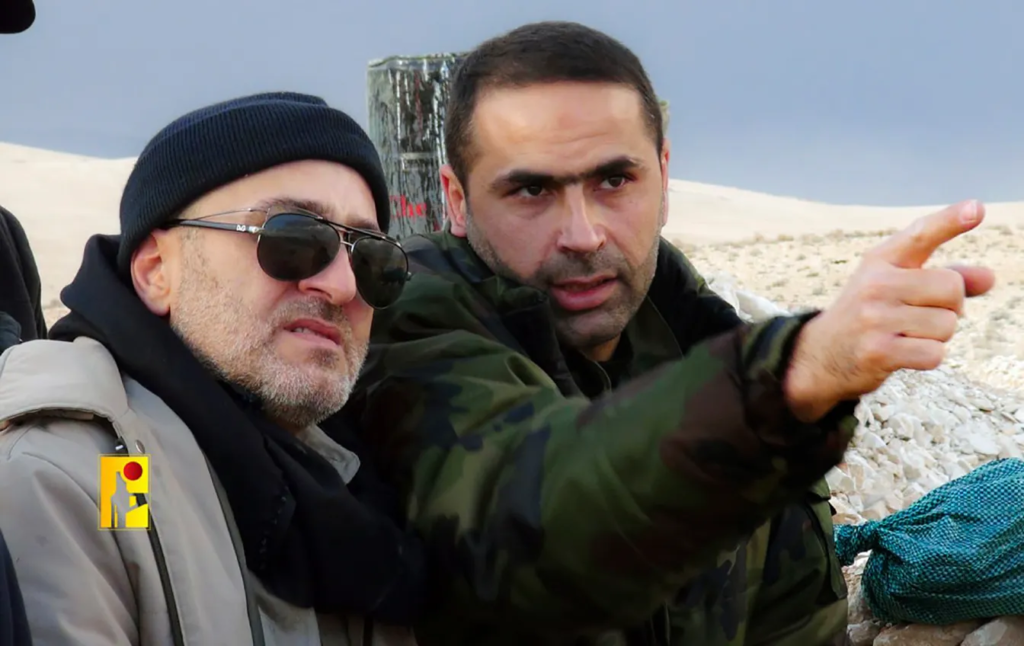Nasrallah’s son-in-law killed in a recent Israeli airstrike in the Mazze district of Damascus, Syria. Hassan Jaafar al-Qasir, who was married to one of the daughters of Hezbollah’s leader Hassan Nasrallah, was among the two Lebanese victims targeted in the attack.
The raid, which struck a residential building, has intensified the already fragile situation in the region, bringing into sharp focus the ongoing conflict between Israel and Hezbollah, the Lebanese militant group.
The Israeli Strike on Damascus
The Israeli airstrike that led to Nasrallah’s son-in-law being killed was part of a broader military strategy aimed at curbing Hezbollah’s influence and activities in Syria.
The raid specifically targeted an apartment in a residential area, an attack that the Syrian Observatory for Human Rights confirmed, pointing out the strategic nature of the assault. Israel has repeatedly conducted strikes on Syrian soil, often justifying its actions as pre-emptive measures against Iranian and Hezbollah forces believed to be operating in the region.
Read : Lebanese Anchor Breaks Down While Announcing the Death of Nasrallah: Watch
Israel’s military involvement in Syria is not new. For years, it has carried out hundreds of airstrikes, targeting Hezbollah, Iranian forces, and their affiliates.
Read : Will Fight With No Rules If Israel Wages War on Lebanon: Hezbollah
These operations are part of Israel’s broader efforts to prevent the transfer of advanced weapons to Hezbollah and disrupt Iranian entrenchment in Syria. However, the killing of a high-profile figure such as Nasrallah’s son-in-law marks a significant development, potentially escalating tensions further.
Nasrallah’s son-in-law Killed
The fact that Nasrallah’s son-in-law was killed highlights the personal stakes involved in the ongoing conflict. Hassan Jaafar al-Qasir, beyond being a family member of Nasrallah, reportedly held an influential position within Hezbollah, a militant group that has been a staunch opponent of Israeli policies for decades.

Al-Qasir’s death, following the recent killing of Hassan Nasrallah himself in Beirut, underscores the significant losses Hezbollah has faced in recent weeks.
Hezbollah, backed by Iran, has been a key player in regional conflicts, particularly in Lebanon and Syria. Its involvement in the Syrian Civil War has placed it in direct confrontation with Israel on multiple occasions.
The killing of Nasrallah’s son-in-law could spur retaliation from Hezbollah, a group known for its resilience and determination to strike back against Israeli forces. It also raises questions about how the group’s internal dynamics might shift in the wake of these high-profile losses.
Regional Implications of the Strike
With Nasrallah’s son-in-law killed, the repercussions of the Israeli strike are likely to reverberate across the Middle East. Hezbollah has long maintained a complex relationship with Syria, where it has provided military support to the Assad regime during the civil war.
The group’s strategic foothold in Syria is crucial for its operations, and any Israeli attempt to weaken its presence there is seen as a direct threat.
The death of Nasrallah’s son-in-law could potentially lead to further escalation between Israel and Hezbollah. Over the years, Hezbollah has built a formidable military apparatus, with its fighters often engaging in cross-border skirmishes with Israeli forces.

The loss of a key figure like Al-Qasir might embolden Hezbollah to ramp up its military activities, especially as the group seeks to avenge the deaths of both its leader and his son-in-law within such a short span of time.
The ongoing power struggle between Israel, Hezbollah, and Iran adds another layer of complexity to the situation. Iran, as Hezbollah’s primary backer, views Israeli actions in Syria as a challenge to its regional ambitions.
With Nasrallah’s son-in-law killed, Iran might feel compelled to offer stronger support to Hezbollah in response to these recent developments, further entrenching the region in conflict.
In conclusion, the news of Nasrallah’s son-in-law killed in an Israeli strike on Damascus signals a serious escalation in the long-standing Israel-Hezbollah conflict.
This high-profile death, combined with the killing of Hassan Nasrallah himself, may lead to increased tensions and potential retaliation from Hezbollah and its allies. As the situation unfolds, the world will be watching closely to see how the dynamics of power shift in this volatile region.

